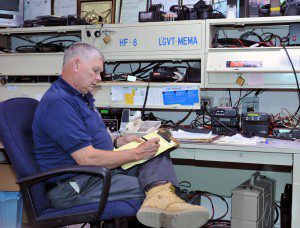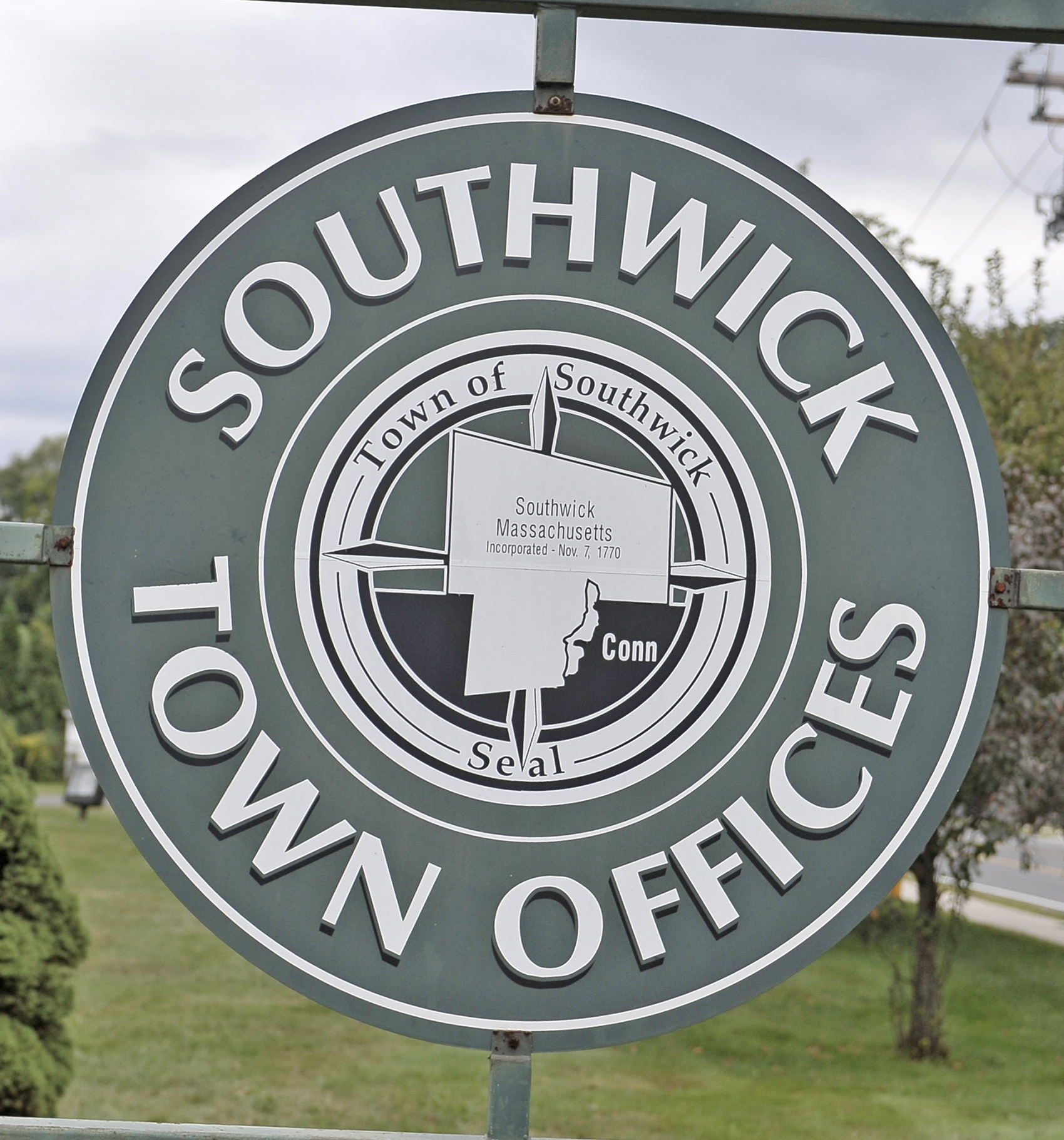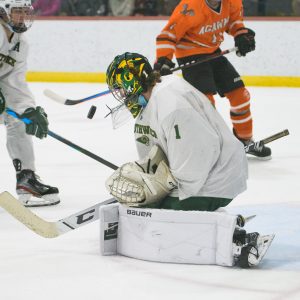
Southwick Emergency Management Director Charles Dunlap examines a set of documents in the town’s Emergency Management Center in the basement of the Southwick Town Hall prior to last year’s October storm which left many residents without power for a week or more. (File photo by chief photographer Frederick Gore)
SOUTHWICK – Residents can rest easy that in case of an emergency, Southwick can get the word out.
Emergency Management Director Charles Dunlap and a team of 25 people from Southwick, Granville, East Longmeadow, Blandford and the state participated in an annual communications training this past weekend.
The Emergency Management Agency Radio Amateur Civil Emergency Service (RACES), including local emergency volunteer groups, participated in a 24-hour radio communications and training exercise operating under simulated disaster conditions. This year, the scenario was based on cyber terrorism with loss of Internet and cell service in all of New England including the eastern United States.
Dunlap said the training was a success.
“It went very well,” he said. “We trained a lot of new people and we were top echelon of the United States and Canada.”
Each station is scored on how well they respond and last year, the Southwick–hosted station was 16th among thousands of participants.
“I think we’ll be close to the top again,” Dunlap said. “This is probably one of the most beneficial, enjoyable training sessions I’ve done.”
That is saying a lot for Dunlap, who has participated in 50 such trainings, including 21 in Southwick.
Planning the event is critical to its success. Dunlap said contacting Dig Safe to ensure the ground rods and antennas are placed appropriately is of the utmost importance.
“Our number one priority is safety,” he said.
The team also had to secure permission to use the facilities. The Southwick Emergency Operations Center in Town Hall was the station they were communicating to, and four stations were set up outdoors, including the town’s mobile emergency unit, and three stations in various locations behind Town Hall at Prifti Park.
This emergency communications training exercise is held annually between communities throughout the United States and Canada on the fourth weekend in June by FCC licensed amateur radio communications operators. RACES, Amateur Radio Emergency Services (ARES) operators and Emergency Management personnel conducted this exercise under simulated adverse conditions using the Incident Command System (ICS) and the National Incident Management System (NIMS). Dunlap said Southwick was able to communicate with nearly all 50 states, as well as Puerto Rico, the U.S. Virgin Islands and nearly every Provence of Canada.
“We also tracked the space station,” he said. “That was the highlight.”
In addition to making radio contact, keeping the emergency personnel trained, fed and hydrated was all part of the exercise.
“Coffee was the ultimate,” Dunlap joked.
Dunlap said luckily weather did not impede the training, although weather events are often the cause for the need to have emergency communications working properly. He said the training would also be beneficial in a situation, such as the Boston Marathon bombings.
“There were phone problems that day, not because they were shut off, but because so many people were calling at the same time,” Dunlap noted.
Dunlap said he was very happy with the training results.
“All in all, the participation was outstanding,” he said.






